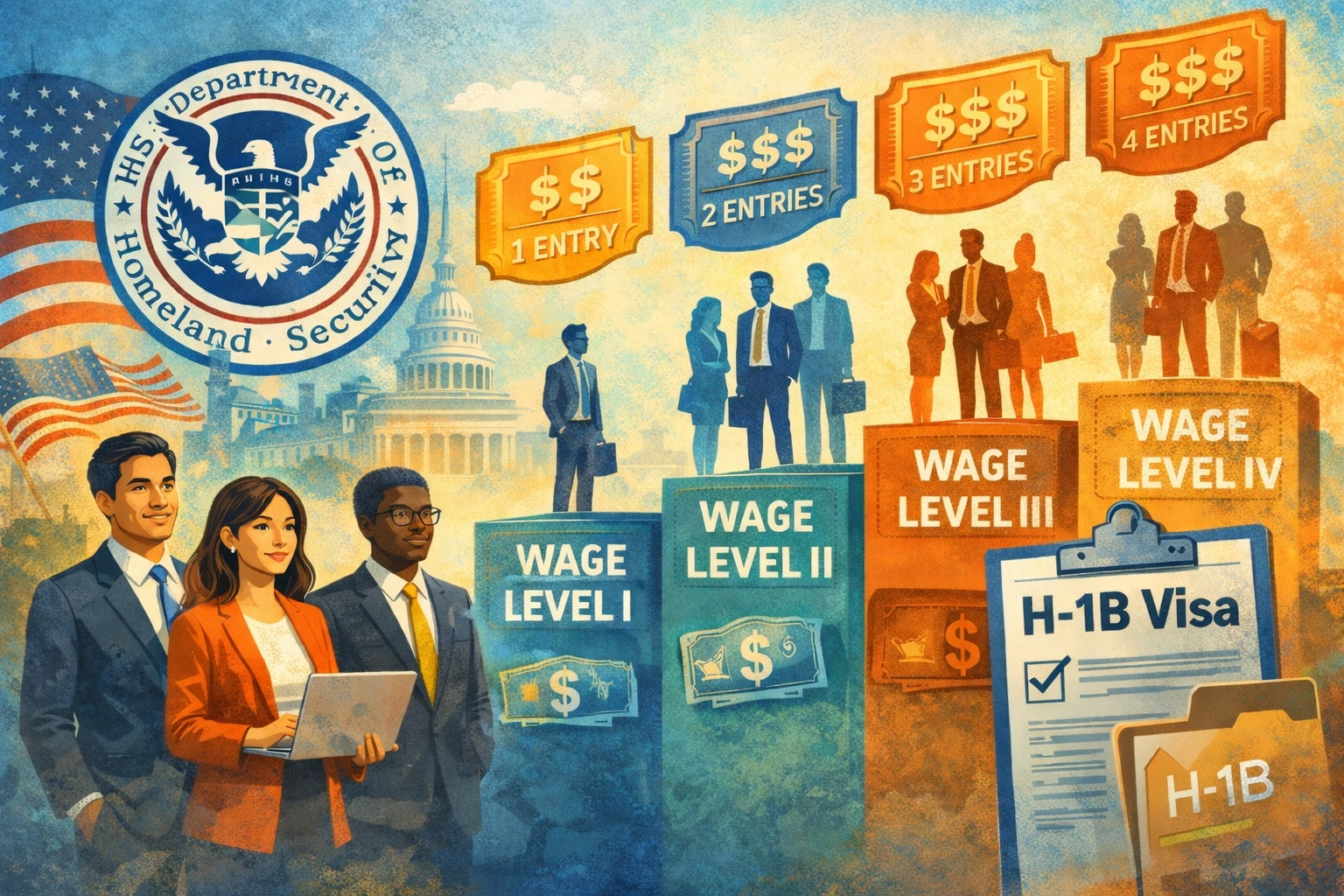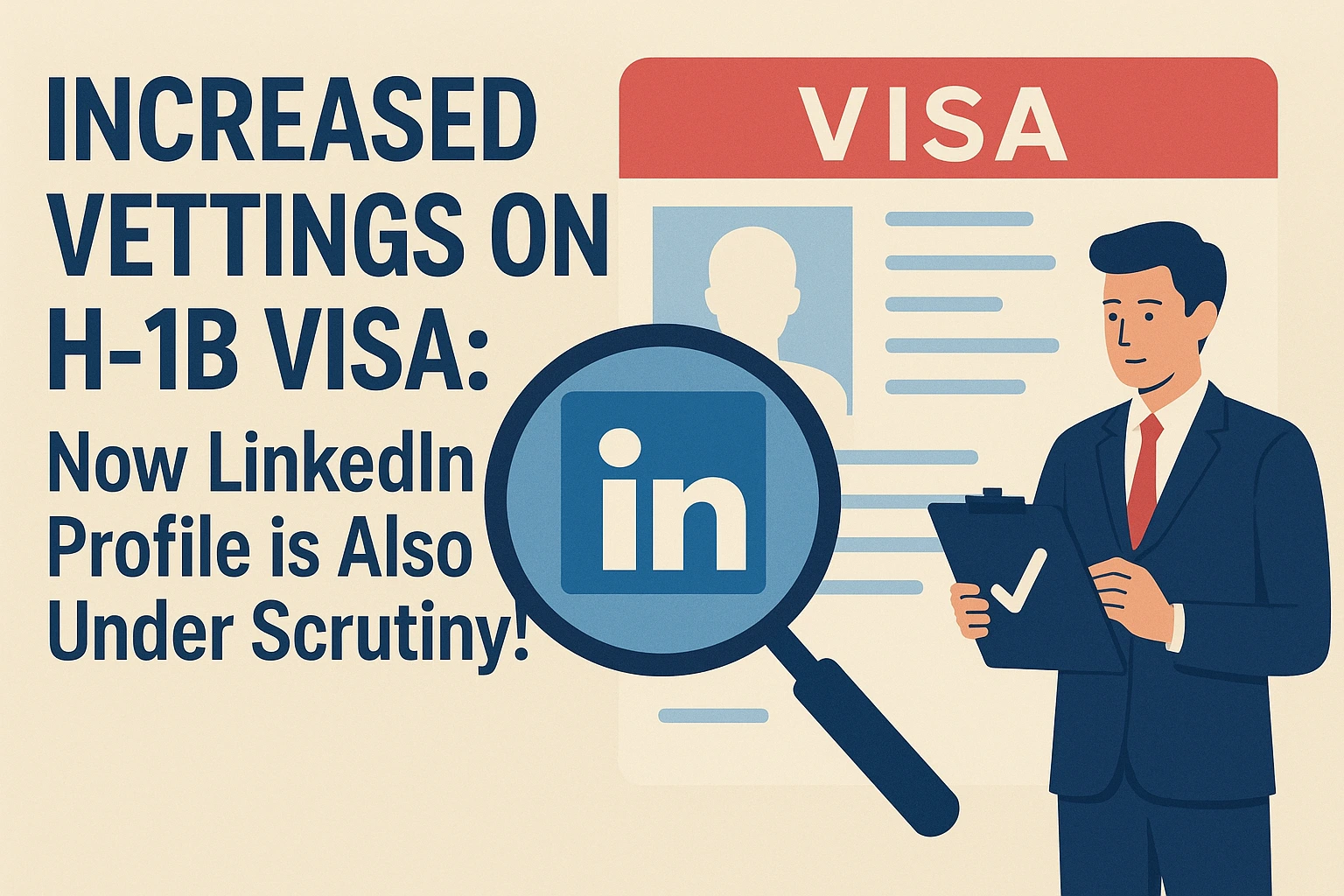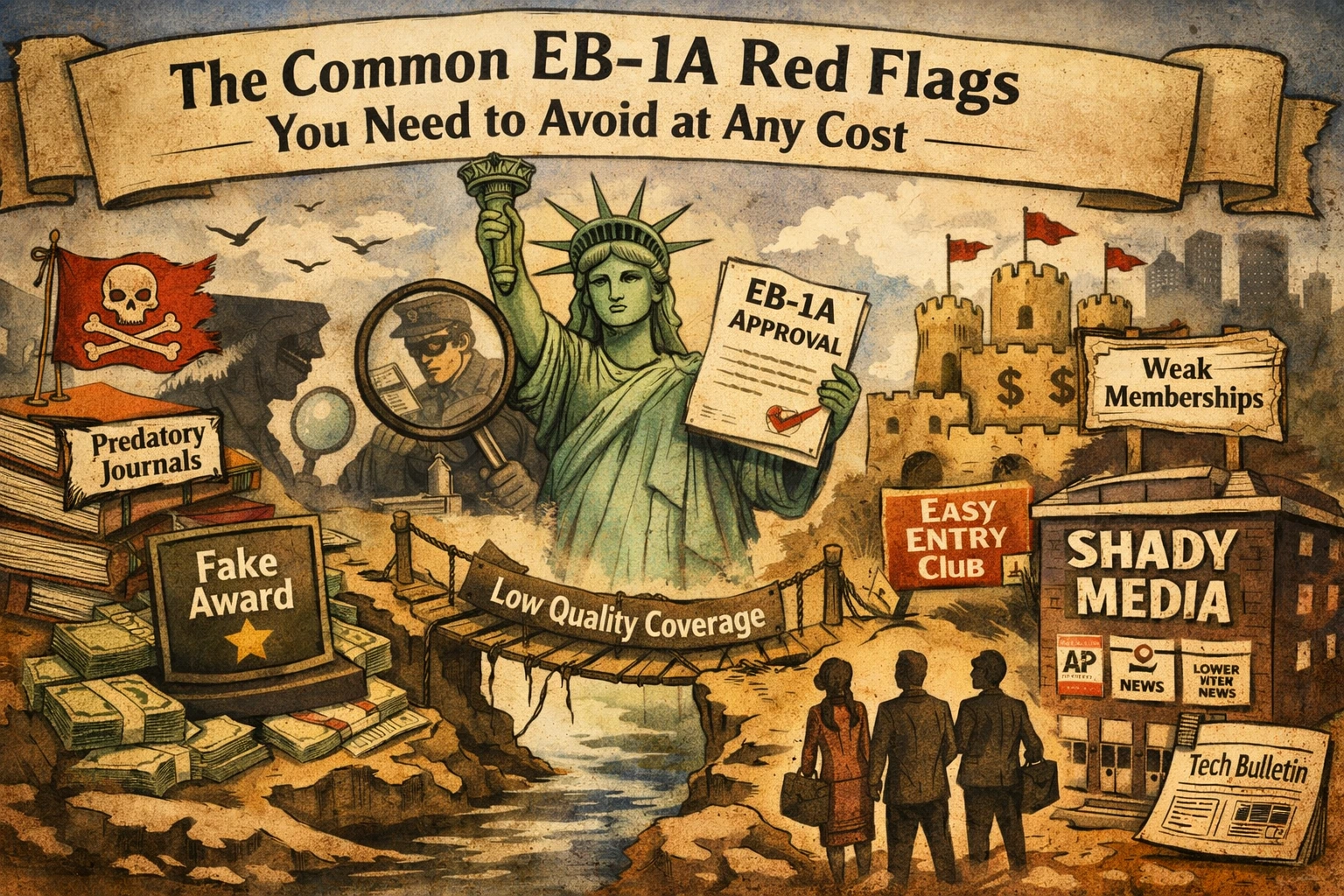Do You Need to Make Your Social Media Public to Get a Visa?
.png)
In June 2025, international students applying for F, M, and J visas were met with a startling new requirement: make their social media profiles public for U.S. consular officers to review. While this is framed as part of “enhanced vetting,” many are asking: Is it really mandatory, and what are the risks? As an EB-1A green card consultancy, it falls into our responsibility to clarify the entire situation. Hence, here, we have provided an extensive breakdown of this issue with most of the available information.
Why are applicants being asked to go public?
The U.S. Department of State announced in mid-2025 that F, M, and J applicants would undergo “comprehensive and thorough vetting” that included mandatory access to social media profiles. Applicants were “requested” to switch settings to public so that officers can scan their activity before visa decisions.(1)
The Guardian reported that this policy emerged under pressure to tighten immigration screenings.(2) The Economic Times highlighted that while visa interviews resumed for Indian students, the “big catch” was the demand to unlock private profiles.(3)
Is it legally mandatory?
Strictly speaking, there is no statute requiring all applicants to go public. However, in practice, applicants must already disclose their social media handles for the last five years on the DS-160 form.(4)
Immigration lawyers caution that refusing to make profiles public may be perceived as “withholding information.” The Sun (Ireland) noted that applicants who leave their settings private risk delays, additional questioning, or outright denials.(5) This makes the requirement less about law and more about practical compulsion.
What are the officials looking for?
According to Time Magazine, consular officials are instructed to watch for three key categories of red flags:(6)
- Hostility toward the U.S. – posts criticizing American society, institutions, or the Constitution.
- Ideological content – antisemitic remarks or support for proscribed groups, which The Washington Post reported USCIS already monitors among immigrants.(7)
- Fraud or discrepancies – mismatches between online claims and application details, as explained by Lear Immigration.(8)
Immigration law firm blogs such as Boundless and Love Immigration have further confirmed that DHS sometimes screenshots posts and stores them in applicant files.(9)
Privacy concerns and civil liberties
Privacy advocates have raised alarms. The Electronic Frontier Foundation (EFF) argued in July 2025 that forcing applicants to make accounts public undermines “basic digital hygiene” and chills free expression.(10) The Brennan Center for Justice similarly warned that the U.S. government is building a “growing trove” of immigrants’ online data, with little oversight.(11)
This means applicants, especially students, are forced into a dilemma: comply and surrender privacy, or resist and risk visa denial.
Best practices for applicants
Immigration attorneys and EB-1A consultants usually suggest the following steps for the candidates to follow:
- Clean and curate : Archive or remove posts that could be misinterpreted.(12)
- Consistency matters : Ensure online details match visa application forms.(13)
- Professionalize : Consider creating a public, professional account while limiting personal content.(14)
These strategies reduce risk while maintaining some control over one’s digital footprint.
What about Green Cards?
The June 2025 rule applies primarily to nonimmigrant student and exchange visas, not directly to green card petitions. However, immigrant petitions also require disclosure of social media handles, and The Washington Post revealed that even green card applicants have been flagged for ideological activity.(7)
Thus, while EB-1A and employment-based green card applicants are not explicitly required to make accounts public, U.S. authorities are monitoring social media broadly across all categories.
Is it mandatory now?
To answer the central question: Yes, student visa applicants are now effectively required to make their social media public, even if the rule is not enshrined in law. Multiple outlets, including The Guardian, Time, The Economic Times, and the Electronic Frontier Foundation, confirm that immigration officers are actively scrutinizing applicants’ digital lives.
How can we help?
At GCEB1, we understand this challenge. Our team not only specializes in EB-1A green card consultancy but also helps clients optimize their social media and professional websites to ensure alignment with U.S. immigration expectations. Your digital presence can either strengthen your petition or create unnecessary risk. With us, you will be prepared to present the best version of your professional identity.
Bibliography
- U.S. Department of State, “Enhanced Social Media Vetting and Resumption of Visa Interviews,” June 2025.
- The Guardian, “New U.S. visa rules will force foreign students to unlock social media profiles,” June 18, 2025.
- Economic Times, “US resumes student visa processing. But there is a big catch,” June 2025.
- Foster LLP, “U.S. visa applicants must now provide social media account information,” June 2019.
- The Sun (Ireland), “Warning for Irish students applying for J1: New social media rule,” June 2025.
- Time Magazine, “What to Know About New Social Media Screening Rules for Student Visas,” June 2025.
- The Washington Post, “U.S. will monitor immigrants’ social media for antisemitic activity,” April 2025.
- Anya Lear, “How Social Media Could Affect Your Immigration Case,” Lear Immigration, April 2025.
- Boundless Blog, “Government Monitoring of Immigrants’ Social Media,” 2025.
- Electronic Frontier Foundation, “You Shouldn’t Have to Make Your Social Media Public to Get a Visa,” July 23, 2025.
- Brennan Center for Justice, “The Government’s Growing Trove of Social Media Data,” 2025.
- Love Immigration, “5 Tips to Protect Yourself if Officials Check Your Social Media,” 2025.
- Lear Immigration, “How Social Media Could Affect Your Immigration Case,” April 2025.
- Boundless Blog, “Government Monitoring of Immigrants’ Social Media,” 2025.







.webp)
.png)
.webp)
.webp)


.webp)
.webp)